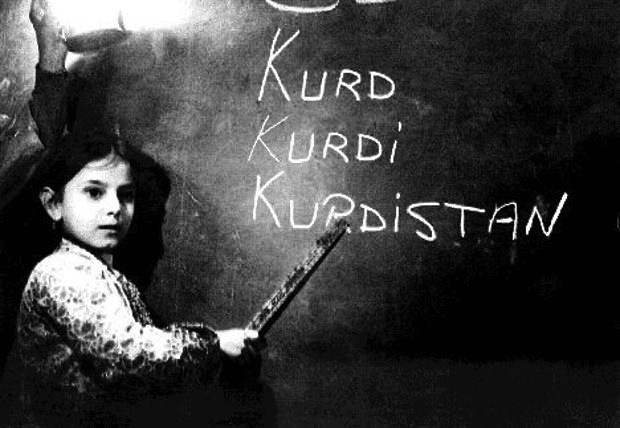Dilan Majid Rostam (1968)
Dilan Majid Rostam (1968)

DM Rostam
Dilan Majid Rostam Bajalan /Roshani (Kurdish: Dílan Mejíd Rostem Bajelan /Roshaní, دیلان مەجید روستهم باجەلان رۆشانی) was born in 1968. His ancestors are from the Bajalan tribe of Binkre, which is located near Khanaqin. His late father Majíd Rostam Majíd Axa was the son of Rostam Axa, the son of Majid Axa Bajalan.
Roshani went to exile in Sweden in early 80s where resided in Gothenburg, where upon finishing high school, he entered into an MSc program in Engineering at Lulea University and then the Chalmers Technical University. He graduated in 1997. During his spare time, he followed his lifetime interest in language engineering by studying Computational Linguistic as a free-mover student. From 1998 to 2001, his interest in computer applied engineering led him to begin working for a Norwegian IT consultancy in Oslo/Norway. In 2001, he began his doctoral studies in Collaborative Integrated Design Using Internet Technology at The University of Nottingham in the United Kingdom, where he received his PhD in Civil and Structural Engineering. Postdoctoral studies in Building Information Technology (BIM) in Education and Industrial Collaborations were also pursued from 2016 to 2018.
Roshani grew interested in learning and teaching Kurdish, namely his mother tongue dialect of South Kurdish, at a young age during this time period. As a native Kurd without a nation, the Internet provided the perfect platform for him to construct his classes and promote his culture. While Internet access was only available to university students in the early 1990s thanks to UNIX machines and NCSA Mosaic bowers, he launched the first Kurdish-related web page “Kurdistan” on the Internet. The page was discovered by a UN employee in Switzerland who wished to help Kurds. They built a huge scholarly network and launched the website “Kurdistan Web”.
Roshani created a project of national/global relevance due to a shortage of credible information sources on the Internet. Dilan evolved “Kurdistan Web” into a new venture, the Encyclopaedia of Kurdistan “KURDISTANICA” online, in 1996. Since then, Roshani has been managing and leading the KURDISTANICA project. KURDISTANICA is continually expanding and serving a diverse spectrum of users.
Roshani also founded a linguistic group in late 1992 to focus on developing e-learning resources for the South Kurdish dialect group. In doing so, he quickly saw the fundamental barriers in Kurdish writing processes that do not meet with International standards or allow for cross-dialect use flexibility. (read more in FAQ question section on KAL’s website). Kurds have been writing their language and dialects in four separate non-standard scripting systems since the early twentieth century. Kurdistan’s geopolitical situation has never permitted widespread study to begin reforming these writing patterns. Many pioneers of Kurdish codifications, such as Prince Jeledet Bedr Xan in 1932, predicted the need for change during a period of widespread public practical writing experiences.
Instead of choosing between four different non-standards writing systems for his own dialect, he aimed to modify, standardise and simplify a most futuristic one and introduce the Kurdish Unified Alphabet “Yekgirtú“. His research showed that many scholars and linguists had/have been advocating the suitability of Latin based alphabet for Kurdish writing practice. Scholars such as T. Wahby, J. Bedr Xan, J.Nebez, M.Izady, A.Haji Marif, and A. Hassanpour have emphasised that Latin based alphabet for Kurdish would be more suitable. Nevertheless, some of the Yekgirtú proposals has become a popular choice of the Kurdish writing practice over the Internet such as /c/, /é/, /ll/, /rr/ and /sh/.
The innovation became the ground for two new web project of Kurdish Academy of Language and xuwarin.org. Through these projects, Dilan put in practice the easiness, capability, workability and feasibility of Yekgirtú alphabet. Dilan and Mr Hémin Zéhawí a former school teacher managed to write the first ever Kurdish textbook for South Kurdish dialects (Alfabéy Nú) using Yekgirtú alphabet in 1998. Dilan rewrote two of the most popular Kurdish textbooks for North (Alfabe by Mehmed Emin Bozarslan from 1968) and Central Kurdish (Elfúbéy Kurdí by Amin Balder from 1952) dialects using the new the Yekgirtú alphabet. These books are available for public use at KAL website.
He is a major proponent of a Unified Alphabet as the final answer to the Kurdish language problem. This will promote all Kurdish languages while utilising a single alphabet to write them. A solid, viable, feasible, and popular one will certainly become a connection for all of them. This is how it worked with Spanish, Italian, and many other Kurdish sibling languages, but they developed an atmosphere for it. He argues that with 80% of Kurds illiterate in their native tongue. With all of the contemporary global experiences available, one can only be the winners by planning Kurdish future.
Linguistic related Publication
- Introduction to Yekgirtú alphabet, 1995, KAL website
- Alfabéy nú , Kurdish textbook for south Kurdish, 1998, Oslo
- Ré rast nùsanini Kurdí, Kurdish grammar book for south Kurdish dialect, 2000, Olso
- IT the dilemma of the Kurdish language, 2001
- e-University for Kurdistan, series of presentations, 2005, 2006, 2007, 2009
- Writing in Yekgirtú alphabet, series of presentations, 2005, 2006, 2007, 2008, 2009, 2010
- Nation-State building or language planning, 1st Intl. KAES Conference, UCLA, CA, USA, 5th Nov 2010

